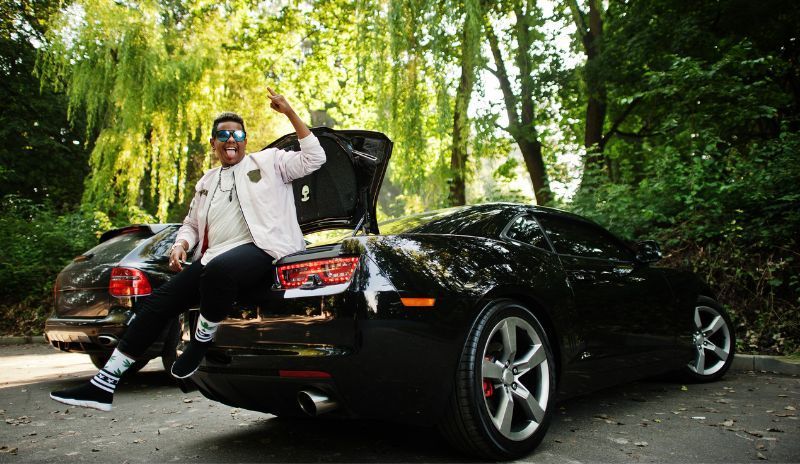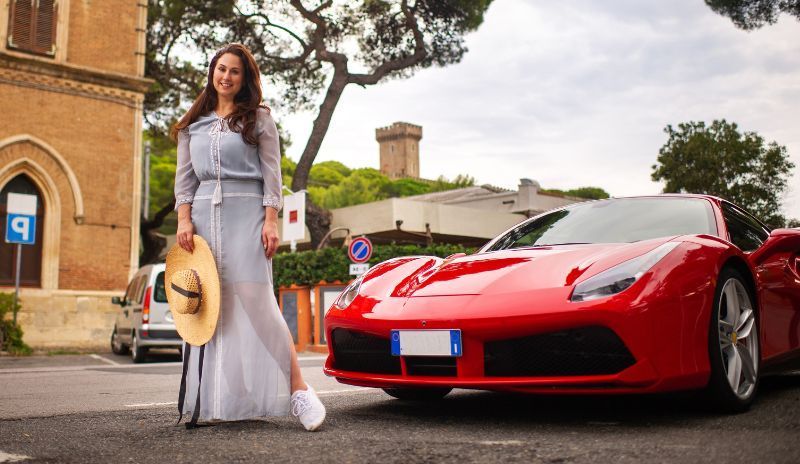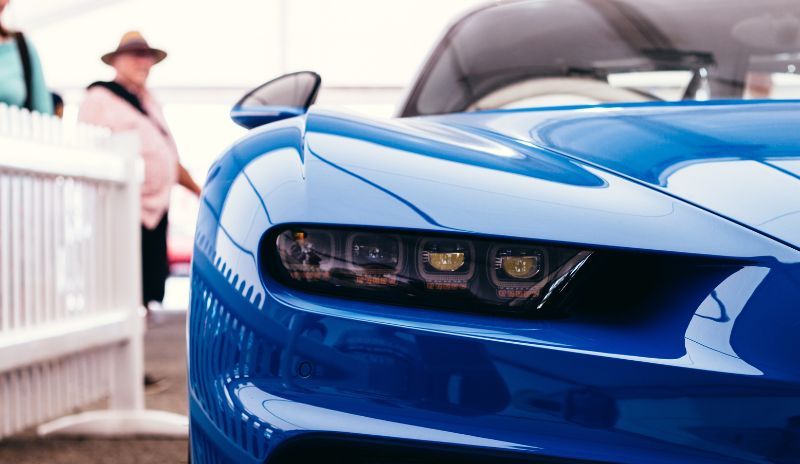See How We're Different
or call us: (214) 253-0570
When it comes to insuring exotic cars, understanding the nuances of different insurance policies is crucial. Two common terms that often arise in discussions about car insurance are "Agreed Value" and "Actual Cash Value." Each has its own implications for coverage and claims, and knowing the differences can save car owners from financial pitfalls. This article delves into both concepts, providing a comprehensive breakdown to help exotic car owners make informed decisions.
Understanding Exotic Car Insurance
exotic car insurance is tailored specifically for high-value vehicles, which often appreciate over time or have unique features that standard cars do not. Unlike regular car insurance, which typically covers the vehicle's market value, exotic car insurance requires a more nuanced approach. This is where the concepts of Agreed Value and Actual Cash Value come into play.
The Importance of Proper Coverage
Having the right insurance coverage is essential for protecting an investment as significant as an exotic car. Many owners mistakenly believe that standard auto insurance will suffice, but this can lead to inadequate compensation in the event of a loss. Exotic car insurance policies are designed to reflect the true value of the vehicle, ensuring that owners are not left underinsured. Furthermore, the emotional attachment and pride that come with owning such a vehicle make it even more critical to have a policy that aligns with the owner’s expectations and the car's worth.
In addition to financial protection, proper coverage can also provide peace of mind. Owners can enjoy their vehicles without the constant worry of potential losses, knowing they have a safety net in place. This is particularly important for those who participate in car shows or track events, where the risk of damage may be higher. A comprehensive policy can also cover the costs associated with restoring a vehicle to its original condition, should any unforeseen incidents occur.
Key Features of Exotic Car Insurance
Exotic car insurance policies often include specialized features such as agreed value coverage, which guarantees a set amount in the event of a total loss. Additionally, these policies may offer coverage for spare parts, custom modifications, and even roadside assistance tailored for high-performance vehicles. Understanding these features can help owners select the best policy for their needs. For instance, many exotic car owners invest in custom paint jobs or high-end audio systems, which can significantly increase the vehicle's value. A good policy will ensure that these enhancements are covered, providing owners with the reassurance that their investments are protected.
Moreover, many insurers offer flexible mileage options, recognizing that some exotic car owners may drive their vehicles less frequently than standard car owners. This flexibility can lead to reduced premiums, making it more affordable to insure a high-value vehicle. Additionally, some policies may include coverage for track days or racing events, which are popular among enthusiasts who wish to push their cars to the limit in a controlled environment. By understanding these key features, owners can better navigate the complex world of exotic car insurance and find a policy that meets their unique needs.
Understanding Exotic Car Insurance
Agreed Value is a type of insurance coverage where the insurer and the car owner agree on a specific value for the vehicle at the time the policy is purchased. This value remains fixed throughout the policy term, providing peace of mind that, in the event of a total loss, the owner will receive the agreed-upon amount without depreciation being factored in.
Benefits of Agreed Value Coverage
One of the primary benefits of Agreed Value coverage is the certainty it provides. Owners know exactly how much they will receive if their car is totaled, eliminating the uncertainty that can accompany other types of coverage. This is particularly important for exotic cars, which may not have a readily available market value due to their rarity and unique features.
Another advantage is that Agreed Value policies often allow for better coverage of modifications and enhancements. Many exotic car owners invest significant amounts in upgrades, and an Agreed Value policy can ensure that these enhancements are factored into the overall value of the vehicle. This means that whether it’s a custom paint job, upgraded exhaust system, or high-performance tires, these investments are protected, allowing owners to enjoy their vehicles without the fear of losing their investment.
Considerations for Agreed Value Policies
While Agreed Value coverage offers several benefits, it is essential to consider potential drawbacks. For instance, premiums for Agreed Value policies can be higher than those for Actual Cash Value policies. This is because the insurer is taking on more risk by agreeing to a fixed payout amount. However, for many owners, the peace of mind that comes with knowing their investment is fully protected justifies the higher cost.
Additionally, determining the agreed value can sometimes be a complex process. Owners may need to provide documentation, such as appraisals or receipts for modifications, to justify the agreed amount. This can require time and effort, but it is a necessary step to ensure adequate coverage. It’s also advisable for owners to periodically reassess the agreed value, especially if significant modifications are made or if the market value of the vehicle changes, to ensure that the coverage remains appropriate and reflective of the car's true worth.
Furthermore, the process of securing Agreed Value coverage often involves working closely with insurance agents who specialize in classic and exotic cars. These professionals can provide valuable insights into the nuances of the market and help owners navigate the complexities of their policies. They can also assist in selecting the right coverage limits and options that align with the owner's specific needs, ensuring that the policy is tailored to provide the best protection possible.
What is Actual Cash Value?
Actual Cash Value (ACV) is a method of valuing a vehicle that takes depreciation into account. In the event of a total loss, the insurance company will pay the current market value of the car, which is determined by its age, condition, and depreciation. This means that the payout may be significantly less than what the owner originally paid for the vehicle. ACV is calculated by taking the replacement cost of the vehicle and subtracting any depreciation based on its age and wear and tear. This formula can often lead to surprises for vehicle owners who may not be fully aware of how depreciation affects their car's value over time.
Advantages of Actual Cash Value Coverage
One of the main advantages of Actual Cash Value coverage is typically lower premiums compared to Agreed Value policies. Because the insurer only pays out the depreciated value of the vehicle, the risk is lower, which can result in cost savings for the owner. This can be appealing for those who are looking to save on insurance costs. For example, a standard sedan that has been driven for several years may have a significantly reduced premium under an ACV policy, making it an attractive option for budget-conscious drivers.
Additionally, Actual Cash Value policies may be easier to obtain, as they often require less documentation and appraisal work compared to Agreed Value policies. This can streamline the process for owners who want to get their insurance in place quickly. Many insurance companies offer online quotes and simplified applications for ACV coverage, allowing drivers to secure their policies with minimal hassle. This accessibility can be particularly beneficial for first-time car owners or those who may not be familiar with the intricacies of classic or high-value vehicles.
Drawbacks of Actual Cash Value Policies
Despite the lower premiums, Actual Cash Value policies come with significant drawbacks, especially for exotic car owners. The most notable disadvantage is the potential for a lower payout in the event of a total loss. Depreciation can significantly reduce the value of a car, meaning that owners may not receive enough money to replace their vehicle with a similar model. For instance, a vintage sports car that has appreciated in value over the years may not be adequately covered under an ACV policy, leaving the owner with a financial gap when trying to find a comparable replacement.
Moreover, the fluctuating market can also impact the payout. If the car market shifts dramatically, the value of the vehicle may drop even further, leaving owners at a disadvantage. This unpredictability can be particularly concerning for owners of rare or collectible exotic cars. The market for such vehicles can be volatile, influenced by trends in collector interest, economic conditions, and even global events. As a result, owners may find themselves in a precarious position where their beloved car is not only underinsured but also subject to a rapidly changing valuation landscape, making it crucial for them to stay informed about their vehicle's worth and the nuances of their insurance policy.
Comparing Agreed Value and Actual Cash Value
When deciding between Agreed Value and Actual Cash Value, it is essential to weigh the pros and cons of each option. The choice often boils down to the owner's priorities—whether they value peace of mind and certainty or prefer lower premiums and potentially less coverage.
Cost Considerations
Cost is a significant factor in the decision-making process. Agreed Value policies generally come with higher premiums due to the guaranteed payout. However, for many exotic car owners, the peace of mind that comes with knowing they will receive a specific amount in the event of a loss justifies the expense. This assurance can be particularly comforting for collectors who have invested substantial sums into their vehicles, as it mitigates the financial risk associated with potential total loss scenarios.
On the other hand, Actual Cash Value policies can be more budget-friendly, making them appealing for those who may not want to spend as much on insurance. However, owners should carefully consider the risk of receiving a lower payout if their vehicle is totaled. This payout is determined by the vehicle's depreciated value at the time of the loss, which can lead to significant financial shortfalls, especially if the owner has made extensive modifications or restorations that enhance the car's value beyond its market depreciation.
Coverage Needs
Understanding individual coverage needs is crucial when choosing between the two types of policies. Owners of exotic cars that have significantly appreciated in value may find Agreed Value policies more beneficial, as these policies will ensure that they receive an amount that reflects the current worth of their vehicle. This is particularly relevant in markets where certain models may increase in value due to rarity or collector interest, making it imperative for owners to secure coverage that matches their investment.
Conversely, owners of exotic cars that are more common or have less potential for appreciation might consider Actual Cash Value policies as a viable option. It is essential to assess the specific characteristics of the vehicle and the owner's long-term plans for it before making a decision. Additionally, owners should evaluate their driving habits—those who use their exotic cars primarily for weekend drives or shows might prioritize different coverage than someone who uses their vehicle as a daily driver. Understanding these nuances can help tailor a policy that not only meets financial needs but also aligns with the owner's lifestyle and usage patterns.
Comparing Agreed Value and Actual Cash Value
When deciding between Agreed Value and Actual Cash Value, it is essential to weigh the pros and cons of each option. The choice often boils down to the owner's priorities—whether they value peace of mind and certainty or prefer lower premiums and potentially less coverage.
Cost Considerations
Cost is a significant factor in the decision-making process. Agreed Value policies generally come with higher premiums due to the guaranteed payout. However, for many exotic car owners, the peace of mind that comes with knowing they will receive a specific amount in the event of a loss justifies the expense. This assurance can be particularly comforting for collectors who have invested substantial sums into their vehicles, as it mitigates the financial risk associated with potential total loss scenarios.
On the other hand, Actual Cash Value policies can be more budget-friendly, making them appealing for those who may not want to spend as much on insurance. However, owners should carefully consider the risk of receiving a lower payout if their vehicle is totaled. This payout is determined by the vehicle's depreciated value at the time of the loss, which can lead to significant financial shortfalls, especially if the owner has made extensive modifications or restorations that enhance the car's value beyond its market depreciation.
Coverage Needs
Understanding individual coverage needs is crucial when choosing between the two types of policies. Owners of exotic cars that have significantly appreciated in value may find Agreed Value policies more beneficial, as these policies will ensure that they receive an amount that reflects the current worth of their vehicle. This is particularly relevant in markets where certain models may increase in value due to rarity or collector interest, making it imperative for owners to secure coverage that matches their investment.
Conversely, owners of exotic cars that are more common or have less potential for appreciation might consider Actual Cash Value policies as a viable option. It is essential to assess the specific characteristics of the vehicle and the owner's long-term plans for it before making a decision. Additionally, owners should evaluate their driving habits—those who use their exotic cars primarily for weekend drives or shows might prioritize different coverage than someone who uses their vehicle as a daily driver. Understanding these nuances can help tailor a policy that not only meets financial needs but also aligns with the owner's lifestyle and usage patterns.
Factors Influencing Your Insurance Decision
Several factors can influence the choice between Agreed Value and Actual Cash Value insurance. Understanding these factors can help owners make an informed decision that aligns with their needs and circumstances.
Vehicle Type and Value
The type of vehicle and its market value play a significant role in determining the best insurance option. Exotic cars that are rare or have a strong collector's market may benefit more from Agreed Value coverage, as their value may not accurately reflect depreciation.
In contrast, more common exotic cars may be better suited for Actual Cash Value policies, especially if they do not have significant appreciation potential. Owners should consider the unique aspects of their vehicles when evaluating insurance options. For instance, vehicles that have undergone extensive modifications or restorations may also warrant Agreed Value coverage, as these enhancements can significantly increase the car's worth beyond standard market evaluations. Additionally, the rarity of certain parts or the historical significance of a vehicle can further complicate its valuation, making it crucial for owners to document their car's condition and any upgrades thoroughly.
Future Plans for the Vehicle
Future plans for the vehicle can also impact the insurance decision. Owners who intend to keep their exotic car for the long term and view it as an investment may prefer Agreed Value coverage to safeguard their investment. This ensures that they will receive a fair payout that reflects the car's value at the time of the policy.
On the other hand, owners who plan to sell or trade their vehicle in the near future may find Actual Cash Value policies more suitable. This can allow them to save on premiums while still providing adequate coverage during the time they own the car. Moreover, it's essential to consider market trends and potential shifts in the automotive landscape, as these can influence a vehicle's resale value. For example, the increasing popularity of electric vehicles and advancements in technology may affect the desirability of certain classic models, prompting owners to reassess their insurance strategies based on anticipated market dynamics.
How to Choose the Right Policy
Choosing the right insurance policy for an exotic car requires careful consideration of various factors. Here are some steps to help guide the decision-making process.
Assess Your Vehicle's Value
Start by assessing the current value of the exotic car. This can involve researching market prices for similar vehicles, considering any modifications or enhancements, and obtaining professional appraisals if necessary. Understanding the car's worth is crucial for determining the appropriate level of coverage.
Evaluate Your Insurance Needs
Next, evaluate personal insurance needs and preferences. Consider factors such as budget, risk tolerance, and how long you plan to keep the vehicle. This will help clarify whether Agreed Value or Actual Cash Value coverage aligns better with your goals.
Consult with Insurance Professionals
Finally, consulting with insurance professionals who specialize in exotic car coverage can provide valuable insights. They can help clarify the differences between policy types, offer guidance on coverage limits, and assist in navigating the complexities of exotic car insurance.
Conclusion
Understanding the differences between Agreed Value and Actual Cash Value is essential for exotic car owners seeking the right insurance coverage. Each option has its advantages and disadvantages, and the best choice often depends on individual circumstances, vehicle type, and future plans. By carefully assessing these factors and consulting with insurance professionals, owners can make informed decisions that protect their valuable investments.
Ultimately, whether opting for Agreed Value or Actual Cash Value, the goal is to ensure that the exotic car is adequately protected, allowing owners to enjoy their vehicles with confidence and peace of mind.




